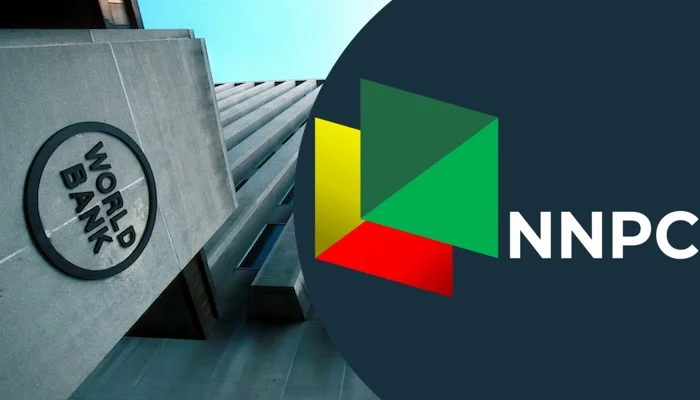The World Bank has raised concerns over the Nigerian National Petroleum Company (NNPC) Limited’s handling of petrol subsidy removal proceeds, revealing that only half of the revenue gains are being transferred to the federation account.
This disclosure, was part of the World Bank’s Nigeria Development Update report released on May 12, 2025, which highlights ongoing transparency issues in Nigeria’s oil sector management.
Limited Remittances Since Subsidy Removal
According to the report, NNPC began remitting subsidy-related revenue to the federation account in January 2025, months after the full removal of petrol subsidies in October 2024.
However, only 50% of these gains, estimated at 2.6% of Nigeria’s GDP in 2024—are being transferred, with the remainder used to offset NNPC’s past arrears.
This practice, the World Bank warns, undermines the fiscal benefits of the subsidy reform initiated by President Bola Tinubu in 2023.
Subsidy Reform and Economic Goals
President Tinubu announced the end of petrol subsidies shortly after his inauguration in May 2023, describing the move as essential for economic growth and national development.
The policy aimed to redirect funds to critical sectors, but public discontent has grown due to a lack of clarity on how the resulting revenue is managed.
The World Bank emphasized that channeling the full subsidy gains to the federation account is vital for consolidating Nigeria’s economic reforms.
Calls for Transparency Intensify
The International Monetary Fund (IMF) echoed similar concerns last month, urging greater transparency in Nigeria’s oil sector.
An IMF official stated, “While we commend the government’s bold reforms, increased openness in managing subsidy proceeds is crucial to ensure resources flow into public coffers.” The partial remittance by NNPC has fueled criticism, with many Nigerians questioning the accountability of the state-owned oil company.
NNPC Under Scrutiny
NNPC has faced intense scrutiny, including a forensic audit prompted by allegations of resource mismanagement.
In April 2025, President Tinubu dismissed the NNPC board, including Group CEO Mele Kyari and Chairman Pius Akinyelure, appointing Bayo Ojulari as the new Group CEO and Ahmadu Kida as non-executive chairman. These changes signal a push for reform within the organization amid growing pressure to address financial irregularities.
A Path to Fiscal Stability
The World Bank stressed that resolving NNPC’s outstanding arrears and ensuring all subsidy gains reach the federation account are critical for sound fiscal management.
“For Nigeria to fully realize the benefits of subsidy reform, transparency and accountability in the oil sector must be prioritized,” the report noted.
As the government navigates these challenges, stakeholders are watching closely to see if promised economic gains will materialize.




















